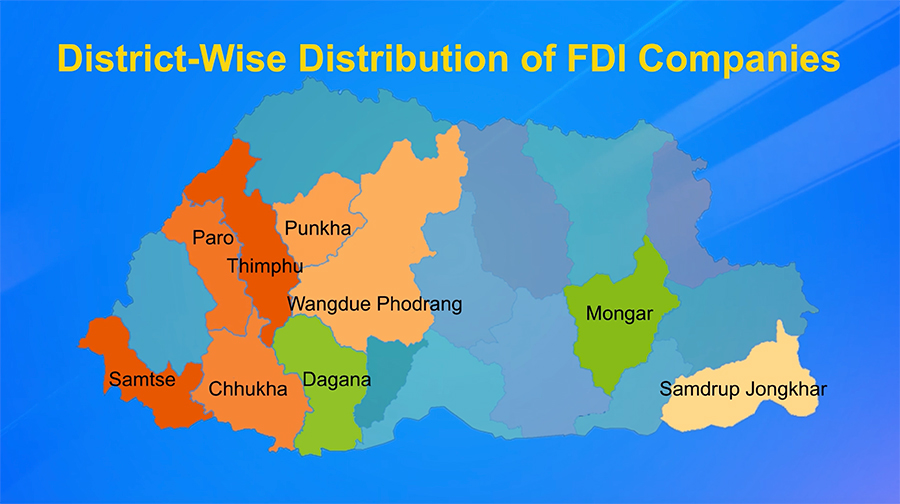 Foreign Direct Investment (FDI) companies in Bhutan are grappling with a growing shortage of skilled labour. The Industry Census of Bhutan 2024, which was recently launched, reveals that around one-third of FDI companies in the country report a labour gap as their biggest challenge, surpassing issues like access to markets, raw materials, and finance. FDI refers to investments made by foreign individuals or companies in businesses or assets in another country.
Foreign Direct Investment (FDI) companies in Bhutan are grappling with a growing shortage of skilled labour. The Industry Census of Bhutan 2024, which was recently launched, reveals that around one-third of FDI companies in the country report a labour gap as their biggest challenge, surpassing issues like access to markets, raw materials, and finance. FDI refers to investments made by foreign individuals or companies in businesses or assets in another country.
Currently, Bhutan has 121 FDI companies. Among these, the Industry Census surveyed 50 FDI companies. The report says that the shortage of qualified labour is mostly seen in industries, particularly in manufacturing and information technology.
Bhutan’s foreign direct investment (FDI) landscape is diverse. The service sector dominates, accounting for 70 per cent of FDI companies, with accommodation and food services comprising 46 per cent. Manufacturing follows at 24 per cent, while the emerging information and communication sector holds a 10 per cent share. The report highlights that the lack of a skilled labour force threatens to weaken the country’s ability to fully harness the potential of these sectors.
The problem is likely to increase as Bhutan continues to attract foreign companies but without sufficient skilled workers. Moreover, the issue of skilled labour is further affected by Bhutan’s geographical and infrastructural factors.
According to the census, FDI companies are spread across nine districts, with Thimphu leading with 58 percent of the total FDI licenses.
The Industry Census reports that of the 50 FDI companies surveyed, 64 percent are based in urban areas, where demand for skilled labour is highest, yet these areas still face difficulties in sourcing local talent.
The census also points out that FDI companies face other major challenges, with 26 per cent of them facing challenges in accessing markets and 22 per cent in securing raw materials, among others.
Despite the challenges, Bhutan received Nu 6.45bn in foreign investments in 2023. It is up from Nu 5.87bn in 2022. Of this, more than Nu 383 M came in international currencies, while around Nu 1.5bn were in Indian rupees.
Meanwhile, the report calls for reforms in the country’s educational system to better align it with market demands. These include enhancing vocational training, building partnerships between educational institutions and businesses, and focusing investment in STEM (science, technology, engineering, and mathematics) education.
Karma Samten Wangda
Edited by Kipchu








